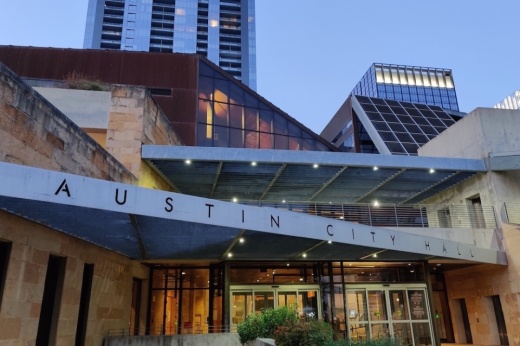During an Aug. 9 work session covering several pieces of City Manager Spencer Cronk's proposed $5 billion budget, City Council members reiterated their call for a more significant boost to the city's minimum wage than Cronk laid out in his initial plan. The draft budget released in July accounts for a pay floor increase from $15 to $18 per hour, the first raise for the city's lowest-wage workers in years. The plan also calls for a one-time $1,500 stipend granted to all employees with at least one year of service.
Council voted unanimously in favor of hiking the living wage up to $22 per hour this year back in June and will now likely seek to reach some middle ground between the two figures this month.
Beginning in 2014, Austin saw several annual living wage increases from $11 to $15 per hour until 2018 when regular raises ended. Both officials and staff have stated despite a goal of restarting such annual pay adjustments while making up for a flat few years, the cost of a more than 46% jump to a rate of $22 per hour may not be fiscally possible right away.
Council's June vote came with the direction that Cronk should seek to raise wages "by the most significant amount possible" if the move all the way to $22 was not feasible this year and also called for the implementation of a gradual plan to continue raising wages over the next few years.
“I was kind of underwhelmed by the city manager’s plan of how we get to $22 an hour and when that happens," Mayor Pro Tem Alison Alter said. "I never really thought it was possible for us to get much past maybe $19 this year, but I still have the goal of getting us up over time. So I want to think about how we do this over time, recognizing that at this point in time we have no money that we’ve identified to fund how we would move from one to the other.”
According to city financial staff, the living wage increase from $15 to $18 per hour already funded in Cronk's budget proposal would benefit more than 1,750 full-time city employees, more than 3,100 temporary workers and 136 part-time staff. A higher wage limit of $22 per hour would affect around 5,000 employees in total, and the cost of that change in FY 2022-23 alone could total nearly $23 million.
Going forward, annual pay increases on the path to a $27 hourly floor by fiscal year 2026-27 as requested by council would cost between $9.5 million and $21.3 million over each of the coming years.
District 2 Council Member Vanessa Fuentes is one of several officials supporting the push for a greater wage hike this year. She said she believes reaching at least a $20 rate would be "more competitive" for the city and help many of the employees who have told council they risk being priced out of town at their current pay. She and other officials also said funding some of the one-time cost could be found in part by eliminating long-vacant positions still included in the new budget outline.
"Knowing the staffing crisis that we’re in, knowing the cost of living that we have here in this city, it was wonderful that we all unanimously agreed that reinvesting in our city’s workforce was a key strategy in how we get back to basics and deliver the fundamentals of city government," Fuentes said. "I’m grateful for the city manager for proposing a budget with an $18 minimum wage, but I don’t think that is sufficient to meet the scale of the crisis that we’re in when it comes to staffing and to help our lowest-wage workers be able to afford and live in the city that they serve.”
Fuentes said she plans to forward a budget amendment, already backed by some of her colleagues, to reach the $20 level in the coming fiscal year.
According to staff research, Austin's proposal to pay its workers at least $18 per hour would equal or pass many other Central Texas governments. Travis County is also proposing an $18 living wage in its next budget, while Austin Community College recently approved a floor of $20 per hour. Staff also noted that Capital Metro features a $22 starting rate for its bus drivers. Williamson County and cities such as Round Rock, Pflugerville and Georgetown all feature minimum wages below $18 per hour.





